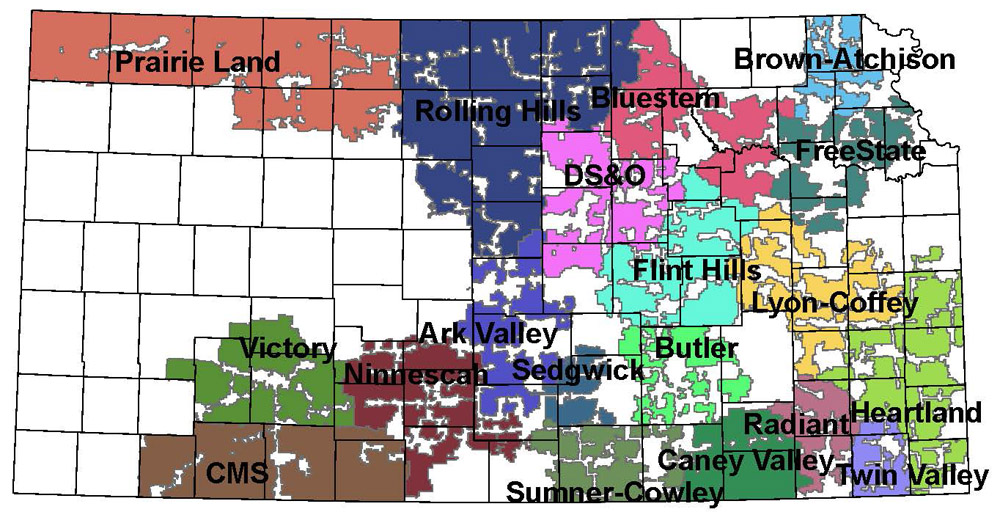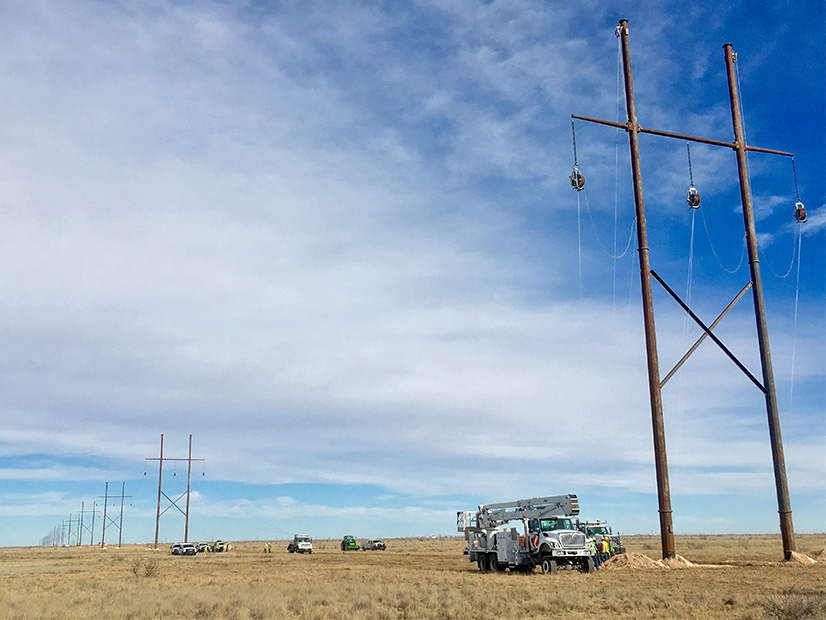FERC on Thursday rejected a pair of separate rehearing requests by SPP members related to the RTO’s assignment of network upgrade charges under Attachment Z2 of its tariff.
The commission affirmed its original decisions involving Kansas Electric Power Cooperative (KEPCo) and Xcel Energy (NASDAQ:XEL) operating company subsidiary Southwestern Public Service (SPS) that SPP’s assignment of network upgrade costs did not violate the utility’s service agreements or the RTO’s tariff (EL17-21, EL18-9).
Attachment Z2 promised transmission upgrade sponsors would receive credits from any upgrade users whose service could not be provided “but for” the upgrade. But section I.7.1 of SPP’s tariff also required the RTO to invoice the charges monthly and to make any adjustments within one year. Because of software problems, it took SPP eight years to implement the attachment, during which the RTO did not invoice for the upgrade charges.
KEPCo had argued that SPP inappropriately assigned $6.2 million in upgrade costs in violation of four separate network integration transmission service agreements (NITSAs), with which FERC in November 2017 disagreed.
In its rehearing request, KEPCo maintained that SPP violated the filed-rate doctrine by assigning to the cooperative credit payment obligations (CPOs) for upgrades not listed in the NITSAs, saying FERC’s holding to the contrary is “based exclusively on the finding that KEPCo had sufficient notice of possible Z2 credit payment obligations.”
The cooperative also alleged the commission’s order did not address the NITSAs’ structure and its argument that SPP may not retroactively assess costs not specified in the NITSAs. It disputed the determination that it was on notice of possible Z2 responsibility and contends that the commission “does not explain why such notice — neither of which is contained in the [NITSAs] or tariff — is sufficient to make KEPCo liable” for CPOs not otherwise specified in the NITSAs.

FERC disagreed, saying that in 2017, SPP did not have a tariff requirement specifying Z2 upgrades must be listed in NITSAs. It noted that the attachment is the governing tariff provision and “sets forth an expectation that sponsors will receive reimbursement from subsequent users that derive beneficial use of those upgrades.”
Referring to the 2017 order, the commission said the NITSAs are part of and “subject to the terms of the tariff, which bound KEPCo to the obligations imposed under Attachment Z2.” FERC said the filed rate included Attachment Z2, through which KEPCo was on notice of the possibility of CPOs that occur within the tariff’s billing requirements.
The commission had granted SPP a retroactive waiver of its tariff in 2016 so that it could invoice transmission service customers for Z2 credit payment obligations for 2008-2016 (ER16-1341). But it reversed course in 2019, saying its original decision was prohibited by the filed-rate doctrine and the rule against retroactive ratemaking. (See FERC Reverses Waiver on SPP’s Z2 Obligations.)
The D.C. Circuit Court of Appeals upheld FERC’s reversal of the retroactive waiver in August. (See DC Circuit Upholds FERC Ruling on SPP Z2 Saga.)
While saying KEPCO no longer has any CPOs during the historical period, FERC found that Attachment Z2, the filed rate, did provide notice of prospective CPOs that did not require waiver of the tariff’s billing requirements.
“The fact that these charges were not specified in the NITSAs does not relieve KEPCo of its obligation under the tariff to reimburse sponsors for the costs of network upgrades from which KEPCo derives beneficial use,” the commission wrote. “Accordingly, we continue to find that there has been no violation of the filed-rate doctrine for charges assessed after the historical period.”
Xcel alleged that SPP’s Attachment Z2 implementation violated the tariff and filed-rate doctrine because the grid operator failed to appropriately apply the “but for” test set forth in the tariff. It said the attachment “unambiguously” provides for CPOs to subsequent service requests that “could not be provided but for” the creditable upgrade.
In denying Xcel’s rehearing request of a 2018 order, FERC continued to find that SPP did not violate the tariff or the filed-rate doctrine in assigning CPOs to SPS. It also rejected Xcel’s contention that SPP’s assignment of CPOs was not sufficiently transparent and was unjust and unreasonable. The commission said Xcel did not identify any particular payment obligation or what type of support it asserts is lacking. It noted that FERC said in its 2018 order that SPP market participants had various channels by which to examine costs, including one-on-one sessions, and noted that Xcel could and should have taken advantage of those channels.
AEP Rehearing Request Rejected
FERC also granted American Electric Power’s (NASDAQ:AEP) clarification of a 2018 order accepting SPP’s filing of an unexecuted NITSA while affirming its previous decision (ER18-1702).
SPP made the filing after AEP declined to execute the revised service agreement because of nonconforming terms and conditions in the RTO’s tariff. AEP asked for a rehearing of the proceeding, alleging that the commission erred in failing to consider specific concerns regarding the applicability of completed aggregate facilities study (AFS) agreements, which the company said reflect an agreement that it need not pay for directly assigned network upgrade costs.
AEP asserted the charges included in the unexecuted NITSA were “plainly inconsistent” with its completed AFS agreement that outlined the terms under which a customer would agree to take transmission service. The company argued those terms “included a clear indication that AEP desired to make no payment for” directly assigned network upgrade costs.
It said that unless the AFS agreements’ terms are binding on SPP, they serve as “a vehicle for SPP to falsely induce customers into taking service under certain terms and conditions and later changes those terms and conditions without any recourse or protection to the customer.”
The commission granted AEP’s clarification request that it will consider the completed AFS agreements’ applicability in the ongoing proceeding to determine how SPP can unwind and resettle CPOs (16-1341).
But it also continued to find that that the issue is whether SPP “has appropriately included certain information in the service agreements pursuant to its tariff” and not administering its Attachment Z2 process during a prior period. The commission said the D.C. Circuit’s decision to uphold FERC’s reversal of the retroactive waiver granted to SPP rendered AEP’s protest moot.




